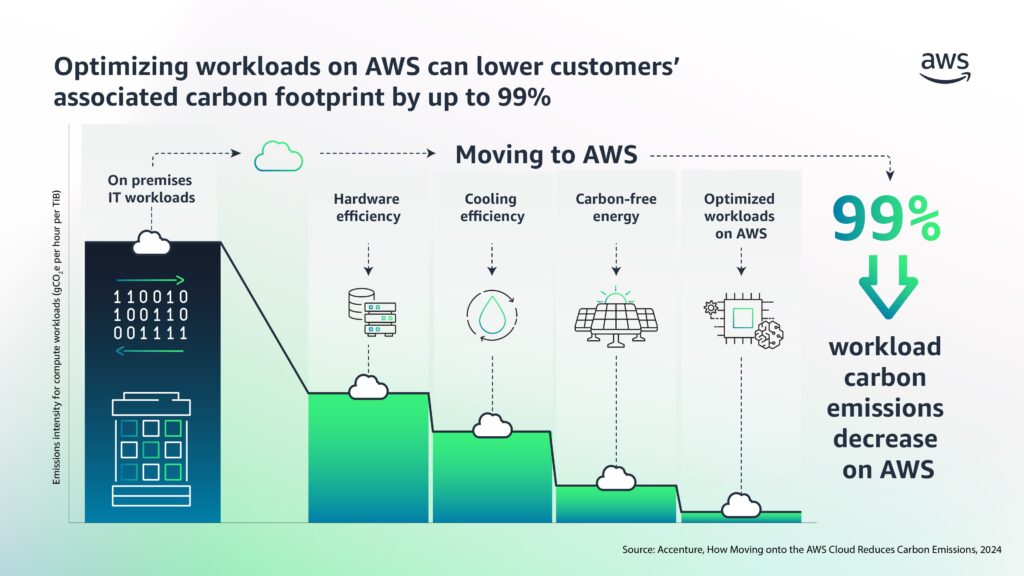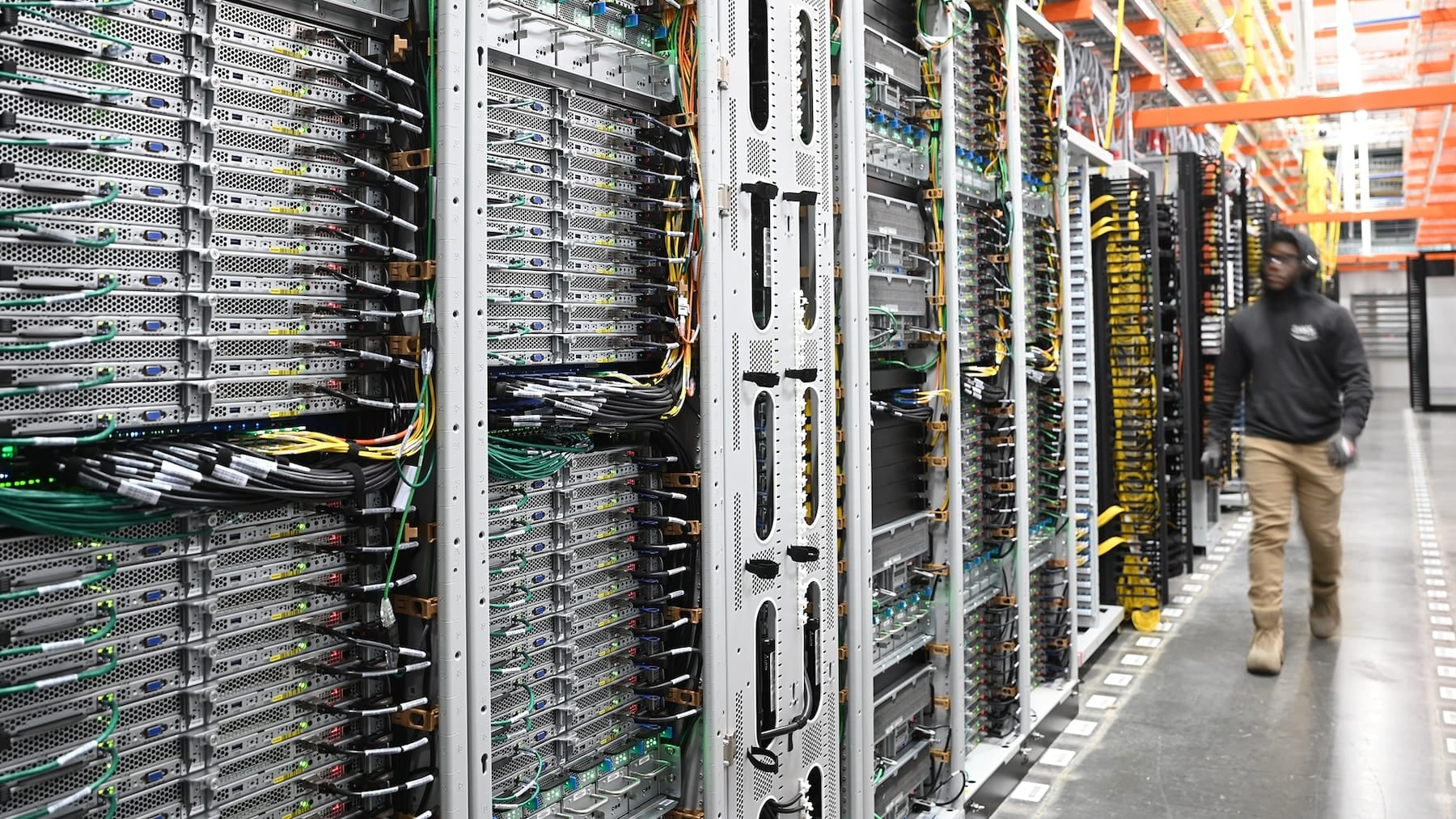In a world where artificial intelligence (AI) is becoming an essential tool for addressing global challenges, reducing its environmental impact is crucial. Amazon Web Services (AWS) has taken a significant step in this direction, with a recent Accenture study showing that by moving workloads from on-premises infrastructure to the AWS cloud, companies can reduce their carbon footprint from operations by up to 99%. This reduction is made possible by the energy efficiency and advancements in AWS infrastructure, making cloud data centers considerably more sustainable than on-premises solutions.
Optimized Workloads on AWS: Four Times More Efficient
According to the report titled “Migrating to the AWS Cloud Reduces Carbon Emissions,” AWS infrastructure is up to 4.1 times more efficient than on-premises operations, meaning those directly managed by companies at their facilities. Despite the growth in the use of data centers and cloud solutions, 85% of global IT spending is still allocated to on-premises infrastructure. However, the study’s results suggest that migrating workloads to AWS and optimizing them on its servers significantly reduces carbon emissions and improves operational efficiency.
Chris Walker, AWS’s Director of Sustainability, highlighted: “AWS is working comprehensively to minimize energy and water consumption in our data centers. We are constantly innovating in design, specialized chips, and cooling technologies to meet Amazon’s goals in the race to net-zero emissions by 2040, as part of The Climate Pledge.”
AWS-Specific Solutions for AI Workloads
As AI models become more advanced and demand greater computing power, the energy and infrastructure requirements increase. Local data centers often face limitations in scalability and efficiency, while AWS is continuously designing improvements that optimize data processing and reduce energy consumption across its facilities worldwide. This difference in approach enables AWS to offer infrastructure that minimizes environmental impact.

One highlighted success story in the study is Illumina, a global genomics and health company that reduced its carbon footprint by 89% after migrating to AWS. This efficiency exemplifies how companies can lessen their environmental impact using AWS cloud infrastructure.
AWS Innovations to Enhance AI Workload Sustainability
AWS has implemented multiple strategies to make the cloud the most efficient and sustainable option for its customers. Key initiatives include:
- High-Efficiency Data Center Infrastructure: AWS optimizes electrical distribution and cooling systems in its centers, minimizing energy waste.
- Advanced Cooling Technologies: AWS uses adaptive cooling systems, such as outdoor air when possible and liquid cooling for high-power AI chips, allowing more efficient performance across various types of workloads.
- Transition to Carbon-Free Energy: AWS is committed to achieving net-zero emissions by 2040. With over 500 renewable energy projects worldwide, 100% of electricity in 19 AWS regions now comes from renewable sources.
- Custom Chips for AI: AWS has developed specific chips for AI workloads, such as AWS Trainium and Inferentia, designed to maximize performance with lower energy consumption, reducing the carbon footprint of these complex models.
- Sustainable Construction Practices: AWS uses low-impact building materials, such as alternative concrete and steel, which allowed a reduction of 22,000 tons of CO₂ emissions in 2023.
- Efficient Data Storage Strategies: AWS helps its customers optimize data management by separating active data sets from inactive ones, reducing energy consumption while managing storage.
Future Projections: Toward More Sustainable AI in the Cloud
The Accenture research quantified energy savings and carbon emissions reductions by comparing on-premises operations to those of AWS across four regions: North America, Europe, Asia-Pacific, and Brazil. The results reveal that storage- and computing-intensive AI workloads are significantly more sustainable in the cloud. Specifically, storage-intensive data can cut emissions by up to 93% on AWS, and by optimizing computing workloads on its infrastructure, reductions can reach 99%.
Sanjay Podder, Global Lead for Sustainable Innovation in Technology at Accenture, stated: “AWS’s focus on hardware efficiency, carbon-free energy, and optimized storage enables companies to reduce the carbon footprint of AI workloads while advancing their sustainability goals.”
With these advancements, AWS demonstrates how the cloud can be an efficient alternative for companies seeking to maintain sustainable operations, helping the planet by reducing the carbon footprint while maximizing the performance of AI systems.
Source: Amazon AWS

